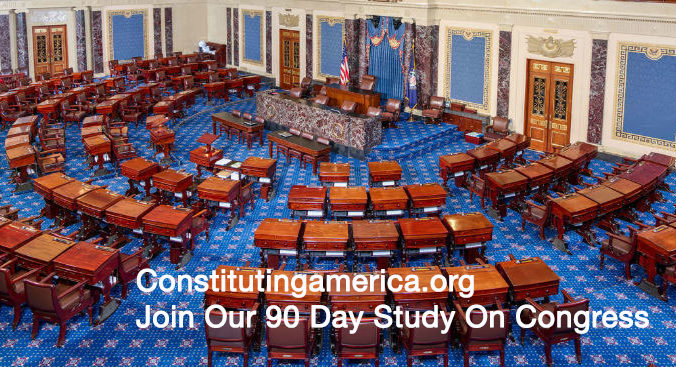Guest Essayist: Frank M. Reilly, Esq., a partner at Potts & Reilly, L.L.P
Amendment XXI, Section 2:
Section 2: The transportation or importation into any State, Territory, or possession of the United States for delivery or use therein of intoxicating liquors, in violation of the laws thereof, is hereby prohibited.
The 21st Amendment is the only amendment to the Constitution which repeals another amendment. The amendment which it repealed, the 18th, became effective in 1920 and it prohibited
“the manufacture, sale, or transportation of intoxicating liquors within, the importation thereof into, or the exportation thereof from the United States”
and its territories. The passage of the 18th Amendment, and the subsequent enactment by Congress of its enabling legislation, named the Volstead Act, began a period known as the Prohibition. The Prohibition era lasted a little over 13 years until the states ratified the 21st Amendment in 1933.
The framers of the 18th Amendment, encouraged by the strong temperance movement and the Anti-Saloon League, hoped that a national prohibition on the use of alcoholic beverages would make the nation a better, and more moral place. President Calvin Coolidge, who served from 1923 to 1929 as our nation’s 30th president, called Prohibition the “greatest social experiment of modern times.” Others, such as former President William Howard Taft, who had served as president from 1909 to 1913 and who served as Chief Justice of the U.S. Supreme Court during much of the Prohibition period, predicted that
“the business of manufacturing alcohol, liquor and beer will go out of the hands of law-abiding citizens and will be transferred to the quasi-criminal classes.”
Taft’s prediction ultimately came true, and many entities that previously made alcoholic beverages, as well as new operations, clandestinely (and sometimes openly) violated the law. The fulfillment of Taft’s prediction, and the other unintended consequences of the Prohibition, was a cruel irony for those who wanted Prohibition to foster a more chaste nation.
Instead of reducing crime and improving the national morality, crime and immorality significantly increased during Prohibition. “Speakeasies,” bars quietly operating in violation of the law, sprang up in larger cities, and in contrast with the swinging-door saloons they replaced, they welcomed the women that began to frequent the new bars. It is said that it became popular within the national culture to violate the law, and a whole class of ordinary citizens became criminals. Private stills produced barrels and barrels of moonshine, some operations were small and served a family or a small group of people; others were larger operations operated by the underworld. Bootlegging gangsters, such as Al Capone, had their heyday. Similar to the illicit drug imports today, international criminals worked hard to bring whiskey, rum and other spirits into the country, more often succeeding than failing at their tasks.
Others found clever ways around the Prohibition. For example, the Napa Valley vineyards of the Beringer family made and sold legal “raisin cakes” from dried grapes, and packaged them with warning labels that said “Caution: will ferment and turn into wine.” Sales of sacramental wine, used in church services to celebrate communion and which was exempt from the Prohibition laws, skyrocketed, and many assumed that some priests and rabbis of the time were bootlegging on the side. People with doctor’s prescriptions were able to purchase 1 pint of spirits per week for “medicinal purposes.” While these exemptions in the law were used for legitimate purposes, organized crime syndicates frequently took advantage of these exemptions and cooked their books to use the legitimate services as front operations to bootlegging.
The Prohibition ushered in at least two additions to popular culture: NASCAR races and the cocktail. In the southern United States, some bootleggers retrofitted cars to run loads of whiskey on a fixed fee, per case basis. These stock cars were built with a heavy duty chassis so that revenue agents would not see an overloaded car, and a souped up engine so the agents could not catch it. These modified stock cars led to the genesis of the National Association for Stock Car Auto Racing after races by moonshine runners became popular in the south. Finally, the cocktail – an alcoholic spirit mixed with a sweet or strongly flavored mixer – was invented to cover up the bad taste of homemade gin or whiskey.
Support for Prohibition began to wither with increased public recognition of: Prohibition’s failures; costly, corrupt and inefficient enforcement efforts; a recognition by some Prohibitionist business leaders that taxing liquor could reduce the impact of rising income taxes; the prospect of new jobs that could be created with a newly legal liquor industry; and finally, the political and economic distractions of the Great Depression. In 1932, Congress passed a resolution to send the 21st Amendment to the states for ratification, and within a year two-thirds of the states ratified the amendment. The law began to fracture even before the amendment became effective. In the spring of 1933, prior to the ratification, newly elected President Franklin D. Roosevelt asked Congress to repeal portions of the Volstead Act to allow the brewing of real beer (“near beer” had been allowed under Prohibition; it tasted like real beer but had an extremely low alcohol content). After the 21st Amendment became effective, the remainder of the federal Prohibition laws were repealed, and significant taxes were added to the sale of liquor.
Frank M. Reilly, Esq., is a partner at Potts & Reilly, L.L.P., Attorneys & Counselors in Austin and Horseshoe Bay, Texas
May 28, 2012
Essay #71

